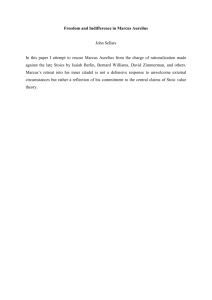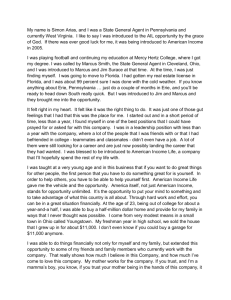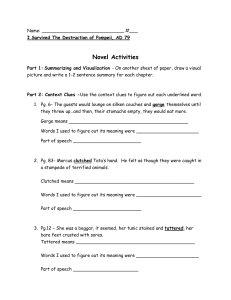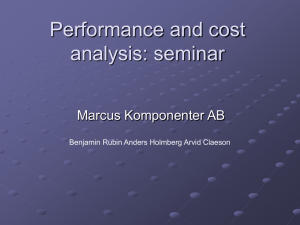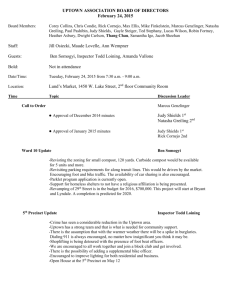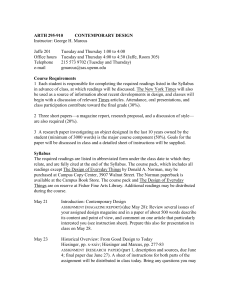Patch Job
advertisement
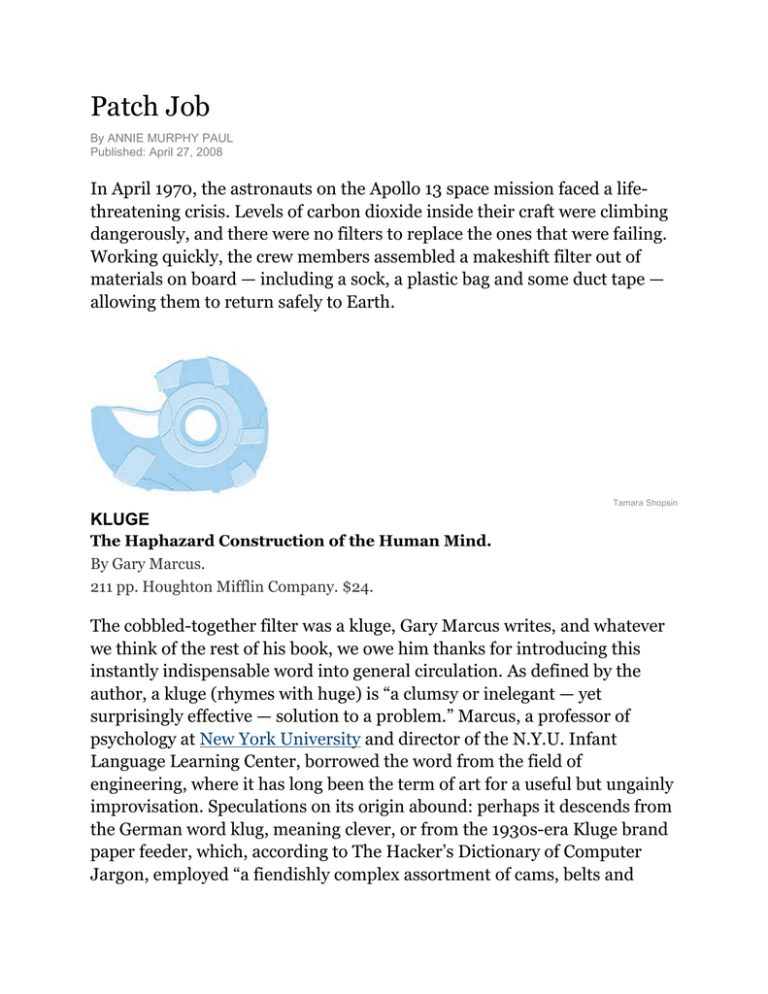
Patch Job By ANNIE MURPHY PAUL Published: April 27, 2008 In April 1970, the astronauts on the Apollo 13 space mission faced a lifethreatening crisis. Levels of carbon dioxide inside their craft were climbing dangerously, and there were no filters to replace the ones that were failing. Working quickly, the crew members assembled a makeshift filter out of materials on board — including a sock, a plastic bag and some duct tape — allowing them to return safely to Earth. Tamara Shopsin KLUGE The Haphazard Construction of the Human Mind. By Gary Marcus. 211 pp. Houghton Mifflin Company. $24. The cobbled-together filter was a kluge, Gary Marcus writes, and whatever we think of the rest of his book, we owe him thanks for introducing this instantly indispensable word into general circulation. As defined by the author, a kluge (rhymes with huge) is “a clumsy or inelegant — yet surprisingly effective — solution to a problem.” Marcus, a professor of psychology at New York University and director of the N.Y.U. Infant Language Learning Center, borrowed the word from the field of engineering, where it has long been the term of art for a useful but ungainly improvisation. Speculations on its origin abound: perhaps it descends from the German word klug, meaning clever, or from the 1930s-era Kluge brand paper feeder, which, according to The Hacker’s Dictionary of Computer Jargon, employed “a fiendishly complex assortment of cams, belts and linkages.” Around midcentury, the word was adopted by the pioneers of early computing; a 1962 article defined a kluge (or kludge) as “an illassorted collection of poorly matching parts, forming a distressing whole.” And that, Marcus writes, is a fair description of a fleshier contraption: the human body. Take the spine. It would make more sense, and spare us much Advil, if we had four cross-braced columns of vertebrae instead of a single vulnerable one. Or the retina: it faces the back of the head rather than the front, burdening us with a blind spot where a clump of wiring gets in the way. We’re a collection of patches and fixes, held together with the biological equivalent of duct tape — the handiwork not of an intelligent designer but of the rough-and-ready processes of evolution. Engineers and computer programmers resort to kluges when pinched for time or money. Evolution “kluges” its solutions because it has only the crudest tools at its disposal: genetic mutations and millions of years. Natural selection can select only from what genetic accidents have made available, and the features it chooses may remain in place not because they are optimal, Marcus writes, but “because evolution just didn’t find a better way.” What’s true of our aching backs and blinkered vision also applies to our brains. The human mind, Marcus writes, is “the most fantastic kluge of them all,” an organ whose “haphazard construction” is apparent in our memory slips, credulous beliefs and self-defeating choices. The early pages of “Kluge” are invigorating fun, as Marcus introduces the concept and explores its application to the evolution of the brain. The notion of nature as an ingenious but often careless technician, content to make do with what’s available, at first seems inspired, one of those unexpected analogies that help us look at everything afresh. Indeed, if we are to think of the mind as a kluge, Marcus asserts, “our very understanding of ourselves — of human nature — must be reconsidered.” He then proceeds to attempt such a reconsideration, in chapters on the “kluginess” of memory, belief, choice, language and pleasure. But almost immediately the promise begins leaking out of the metaphor like air from a punctured tire. Thinking of the brain as a kluge, it turns out, doesn’t change much at all; the points Marcus makes about how our minds trip us up are familiar from years of bulletins from cognitive psychology and behavioral economics. The excitement of the concept has dissipated by the final chapter, in which Marcus offers a list of tips to help us “outwit our inner kluge.” No elaborate analogy is necessary to produce recommendations like this one: “Whenever possible, don’t make important decisions when you are tired or have other things on your mind.” Marcus himself appears to realize that his advice is rather rusty. When he writes that his suggestion to weigh benefits against costs “sounds obvious,” and that his counsel to try to be rational “may sound unbelievably trivial,” the reader can only agree. Marcus, it seems, has a problem: an appealing and intriguing idea that isn’t quite as big as he claims. To solve it, he reaches for that rhetorical kluge, the straw man, setting up and then sweeping aside the notion that the human mind is infallible. “Are human beings ‘noble in reason’ and ‘infinite in faculty’ as William Shakespeare famously wrote?” Marcus asks ingenuously. “Perfect, ‘in God’s image,’ as some biblical scholars have asserted?” Hamlet might well complain that his remarks are being quoted out of context — after all, he goes on in the same soliloquy to call man the “quintessence of dust.” And biblical scholars have devoted at least equal time to the flaws and sins of humanity (serpent, apple, etc.). Even Marcus’s own readers’ imputed beliefs become so many flimsy figures for him to knock down. He writes of “our everyday acceptance of the idiosyncrasies of the human mind,” suggesting later on that “many of us just don’t want human cognition to turn out to be less than perfect.” Actually, most of us are only too aware of our mental malfunctions, greeting them with consternation (and maybe a profanity or two). But in skewering these supposedly universal assumptions, Marcus has taken a slight premise and leveraged it into a book. It’s not the most elegant solution to his problem, but hey, it works. Annie Murphy Paul is the author of “The Cult of Personality: How Personality Tests Are Leading Us to Miseducate Our Children, Mismanage Our Companies, and Misunderstand Ourselves.”
